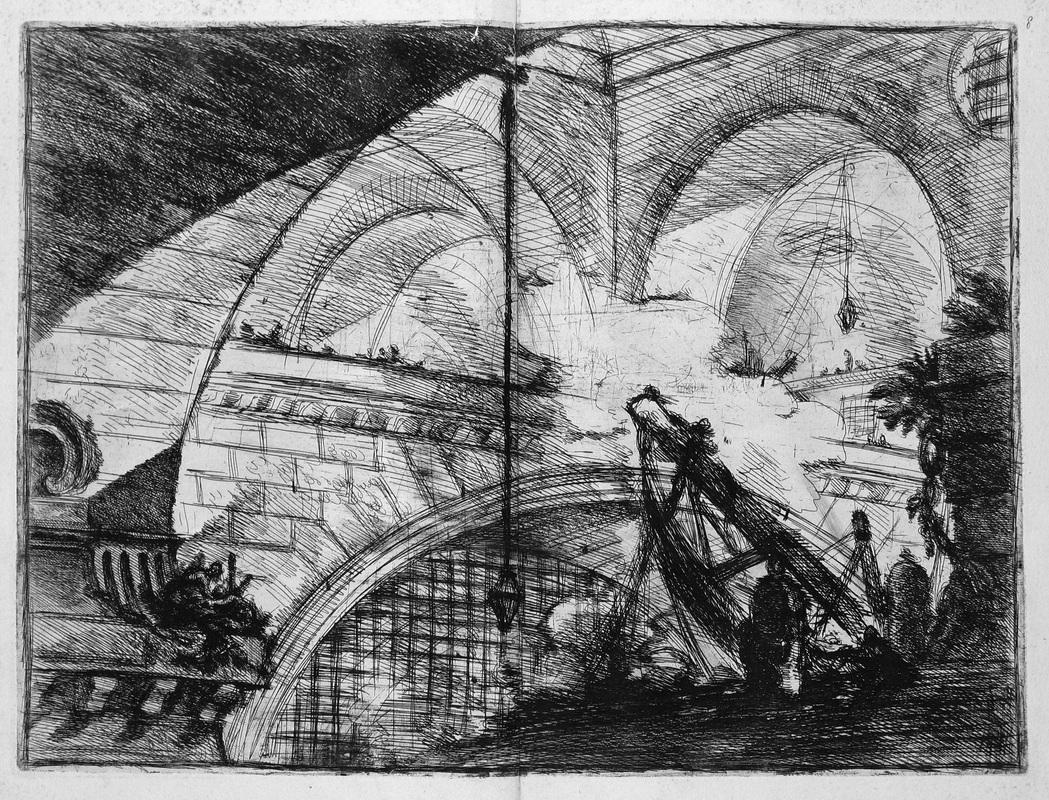
Nonetheless, we want Piranesi to be safe, and so we want him to thinking clearly, to remember, and, perhaps most pressingly, to protect himself from the Other and the Prophet. As Piranesi realises his forgetfulness, we feel sorrowful, knowing that his remembering might bring about horrific realisations. This theme is continued in Piranesi’s conversation with the Prophet, but in this chapter we also see knowledge as a loss of innocence. In my conversation with Malcolm Guite, we discussed how Piranesi and the Other model two different postures toward knowledge: knowledge as power, and knowledge as relationship. What if instead of constantly exposing ourselves to the horrors of the world, we went the way of Piranesi: tending to our physical needs, reminding ourselves of all that is good in the world, and playing our flute made from the bone of a swan. As we scroll through hate, bitterness, loss, and irony, we can become benumbed, cynical, or depressed. In our world of constant disaster and newsfeeds, it is so tempting to binge-watch the world burn. There is something so wise and beautiful in this. “Their Beauty soothed me and took me out of Myself their noble expressions reminded me of all that is good in the World.” He eats, he mends his socks, he plays his pipe, and he visits the statues. He resolves to try to discover the origins on his life in the house, but knowing that it will be very upsetting to him, he engages in activities that sooth and care for both his body and soul. Piranesi is understandably upset by the realisation that he suffers periods of illness and forgetfulness, and that there is much about his life that he does not understand. “I have resolved to take better care of Myself…” I’m pulling out a few important points below, but you’ll have to listen into the episode to learn why I will, henceforth, picture Andy Crouch playing a flute made out of a swan bone as he readers his Twitter timeline.

We talked about the wicked Prophet, self-care, naïveté, knowledge, innocence, the difference between opponents and enemies. Everyone (except me, surprisingly!) had tea. I felt like I was merely joining in on a family discussion. He is worried he will go insane.ĭiscussing this chapter with the Crouches was such a joy. He has eaten from the tree of the knowledge of good and evil. This discovery begins to erode the edenic peacefulness of Piranesi’s life.

He resolves to read his old journals, which he thinks may contain hints to his previous life. In chapters one and two, we are introduced to the House, and we cannot help but say, as God does at the end of the creation story, “It is very good.” In Part Three, however, we discover that there is a snake in this garden: the Prophet! In his conversation (if it can be called that) with the Prophet, Piranesi begins to realise that he has forgotten many things and that the Other may not be telling the truth. I found Timothy’s description of this chapter very helpful: it is the Genesis three of Piranesi’s story. Listen in at the link above! In this chapter, we experience an encounter with evil, an acquirement of knowledge, and a loss of innocence. Listening back through, I was struck by how much we laughed. Each member had such a unique insightful perspective. I felt like I was sitting in on a Crouch family discussion.

I sent a note to see if he’d like to join in on the book club, and to my great delight, that note resulted in not one, not two, but three insightful (and merry) guests: Andy, Amy, and Timothy Crouch! It turns out that Piranesi made its way through the Crouch clan this year due to some dedicated evangelism on Amy’s part. A few weeks ago, I saw that Andy Crouch (who you may know from Christianity Today, his book Culture Makers, or his work on Praxis Labs) was tweeting about Piranesi.

Welcome back to Reading with Joy, my summer book club where we’re reading Piranesi by Susanna Clarke.


 0 kommentar(er)
0 kommentar(er)
